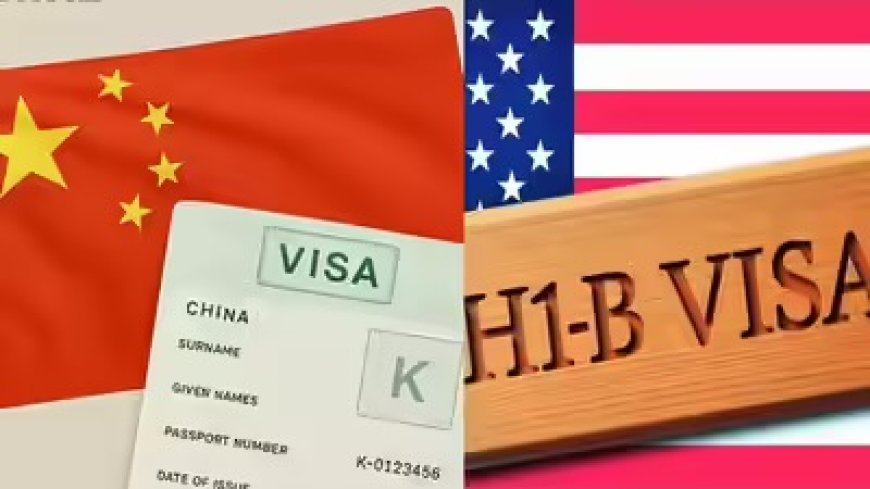China unveils K visa to woo tech talent

China this week unveiled a new visa category aimed at attracting foreign science, technology, engineering and mathematics graduates.
The move is seen as a strategic bid to bolster Beijing’s technology workforce as the United States tightens access to its H-1B programme, Reuters reported on Monday.
K visa, first announced in August, is due to take effect on Wednesday, October 1, 2025.
It promises entry, residence and the right to work in China without the need for a sponsoring employer, a direct contrast with the U.S. H-1B system, which requires employer sponsorship and is subject to an annual lottery.
Immigration lawyers and strategists say the timing could give China an edge after the Trump administration proposed a $100,000 annual fee for first-time H-1B visas, a policy that has prompted many potential applicants to seek alternatives.
“The symbolism is powerful: while the U.S. raises barriers, China is lowering them,” Iowa-based immigration attorney Matt Mauntel-Medici told Reuters.
Chief strategist at Geopolitical Strategy, Michael Feller, added that President Donald Trump’s US visa moves had “shot itself in the foot,” calling the timing “exquisite” for Beijing.
Still, questions remain over how attractive the K visa will be in practice.
Official guidelines provided by the State Council of the People’s Republic of China through China Briefing, so far set only broad criteria—citing age, education and experience—and do not spell out details on family reunification, pathways to permanent residency or financial and employment supports.
However, checks revealed the visa is available to graduates in STEM fields from recognised universities or research institutions worldwide, holding at least a bachelor’s degree.
Young professionals engaged in relevant education or research work at such institutions are eligible.
Unlike the U.S., China rarely grants citizenship to foreigners, and many tech jobs in the country operate in Mandarin, a barrier for non-Chinese speakers.
Observers also say geopolitical frictions, particularly between Beijing and New Delhi, could complicate outreach to the large pool of Indian STEM professionals who historically dominated H-1B allocations.
“It’s an appealing alternative for Indian STEM professionals seeking flexible, streamlined visa options,” Bikash Kali Das, an Indian student at Sichuan University, told Reuters.
But Das added that language and political tensions were potential hurdles.
China’s recruitment drive complements other measures Beijing has taken to court foreign investors and travellers.
In the past, the Asia top economy has opened more sectors to overseas capital and extended visa waivers for many European and East Asian nationals.
While the K visa is unlikely to transform China into a major immigrant destination overnight, analysts say even modest gains in global tech talent could sharpen Beijing’s competitive position in cutting-edge industries.

 admin
admin 


